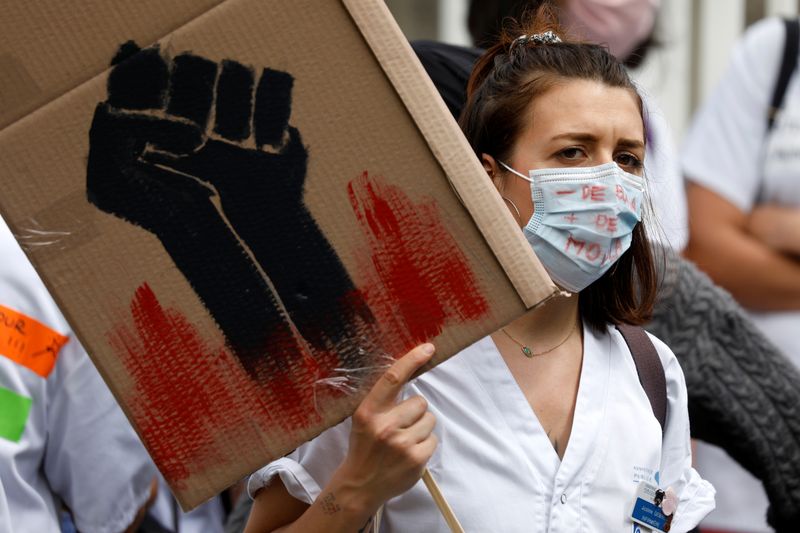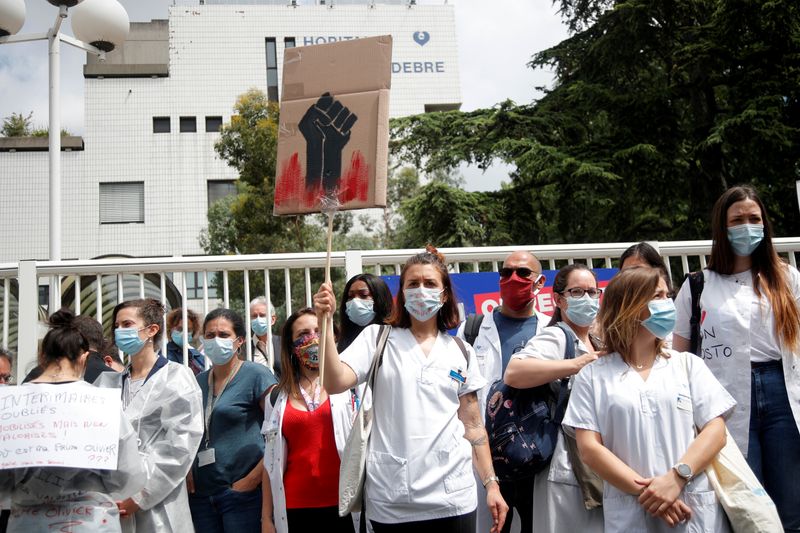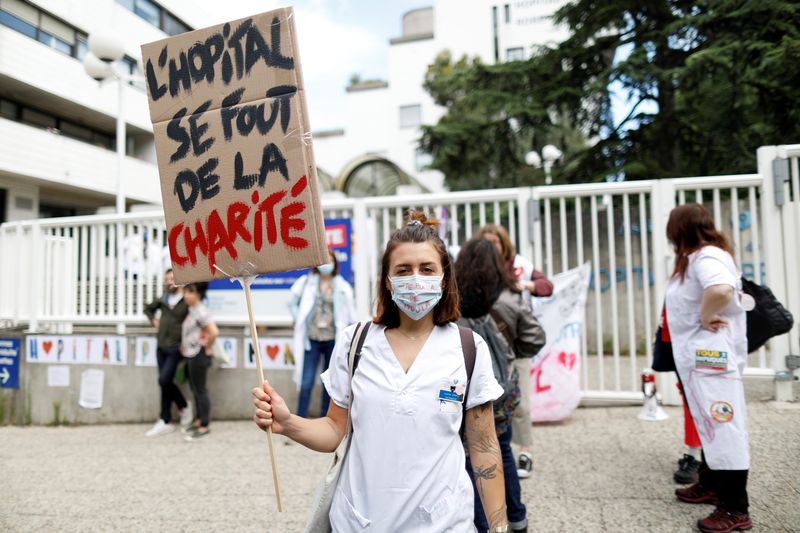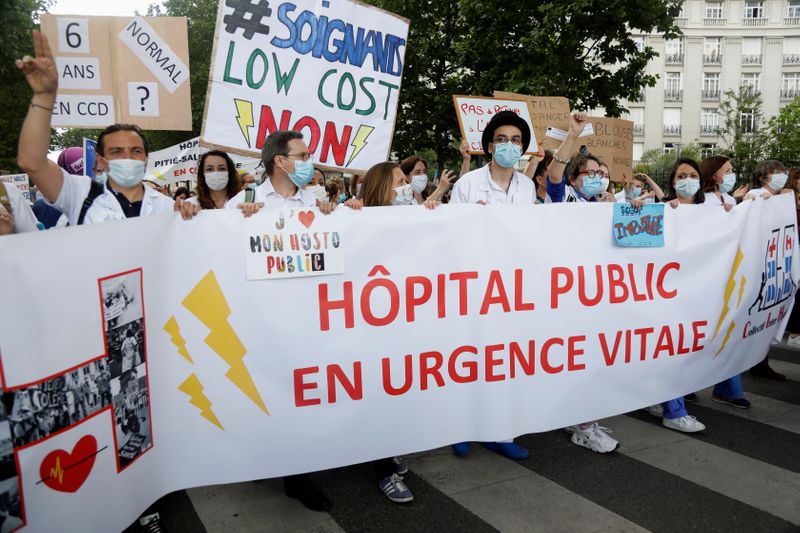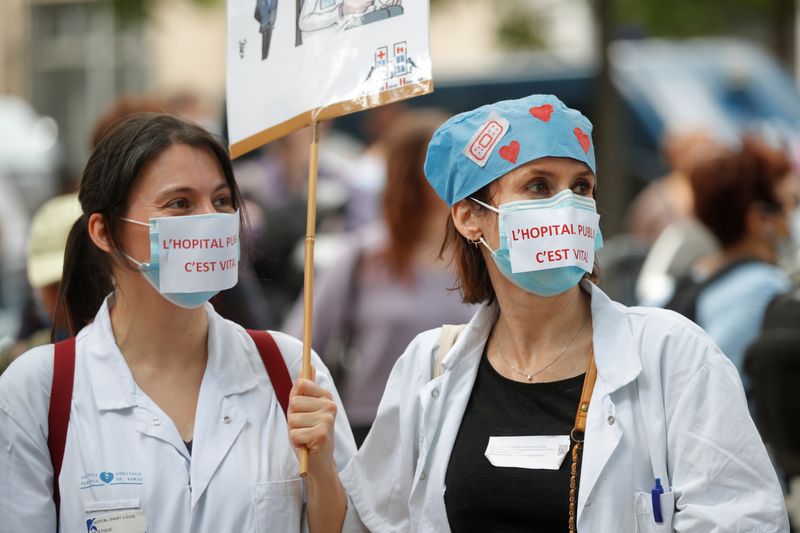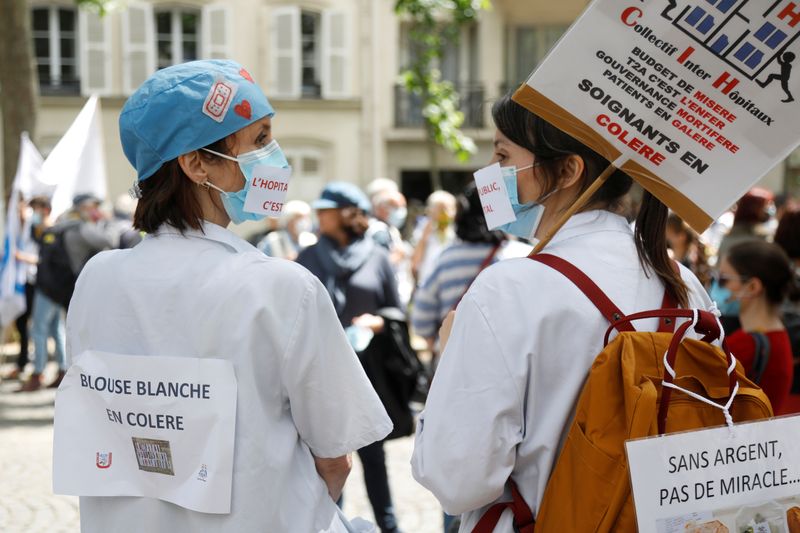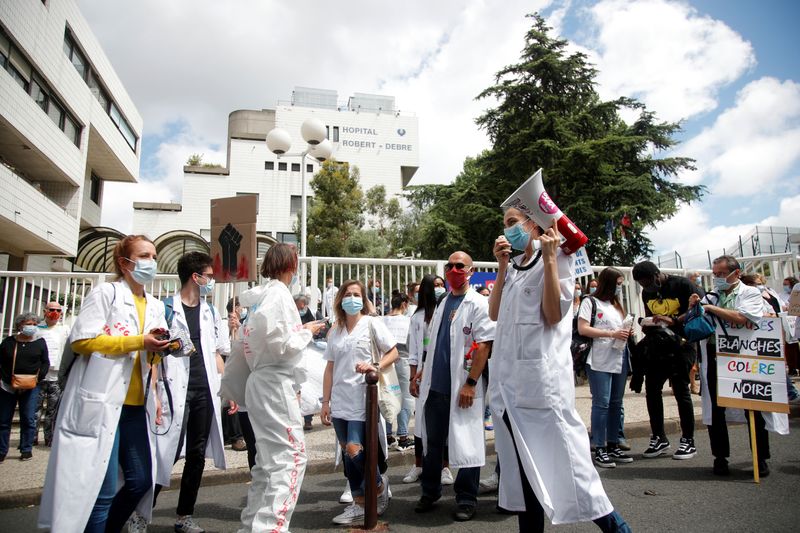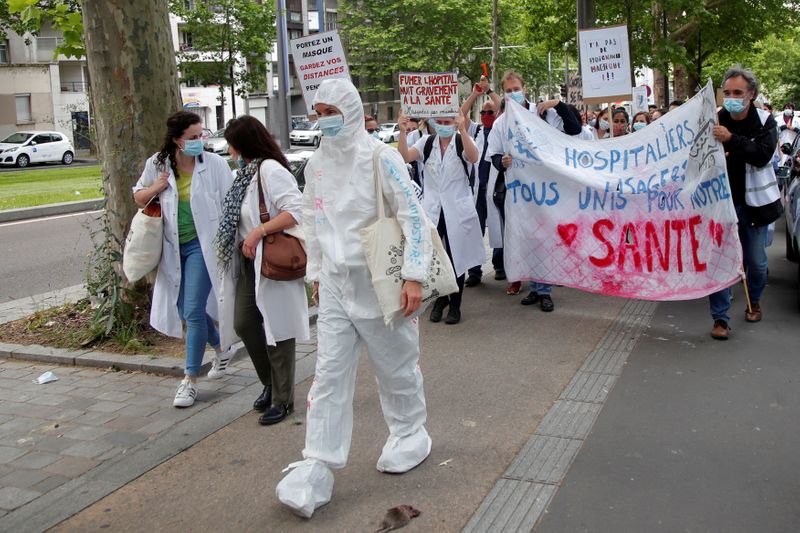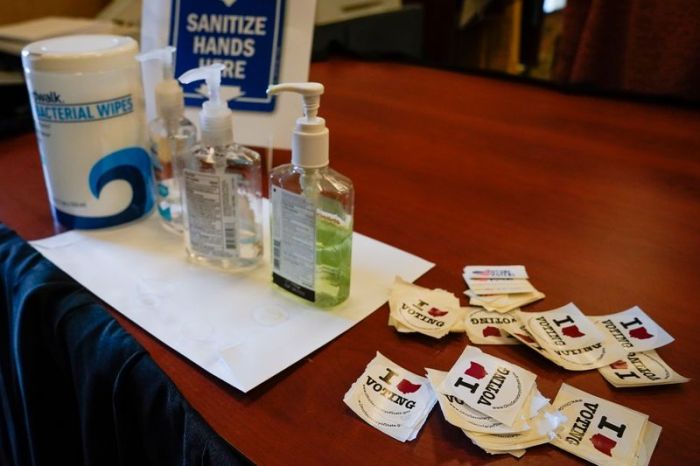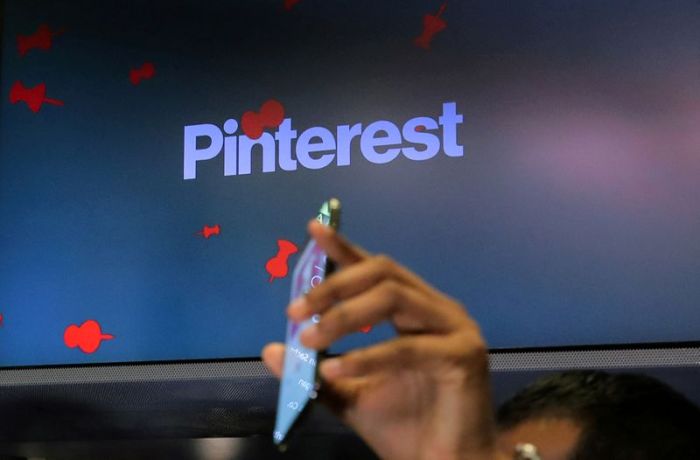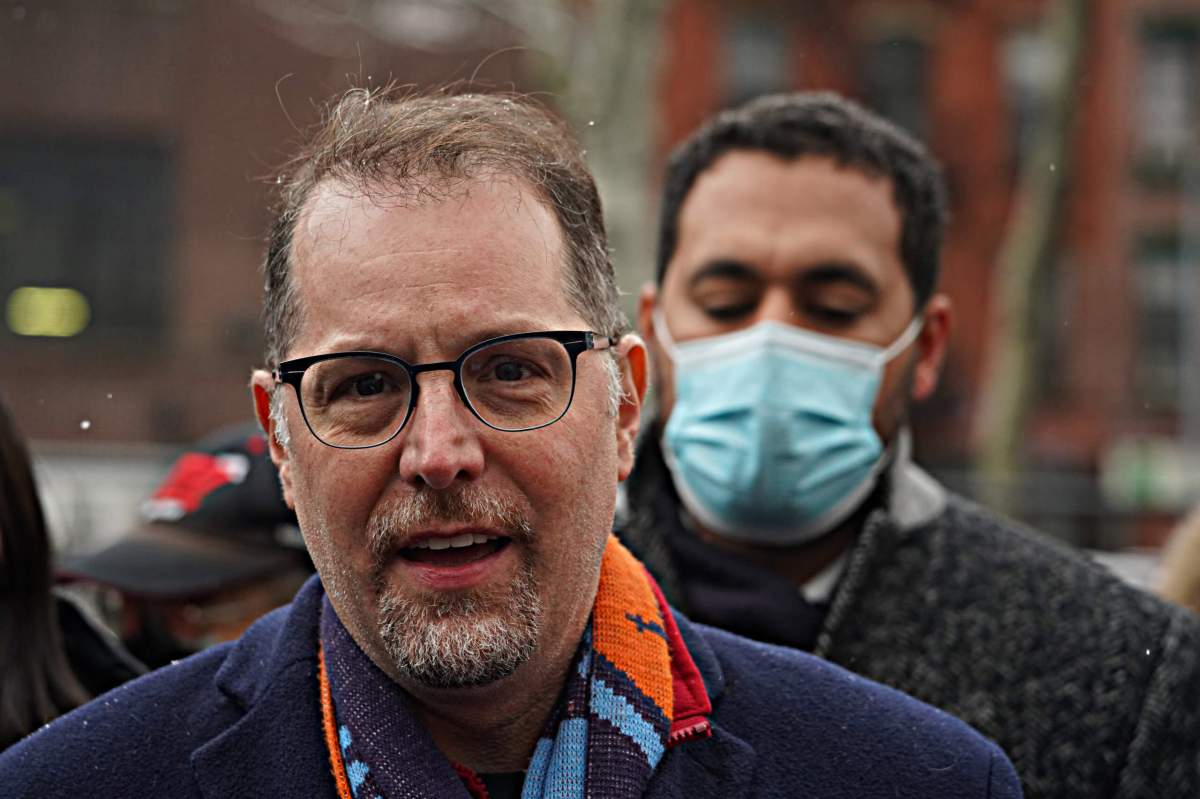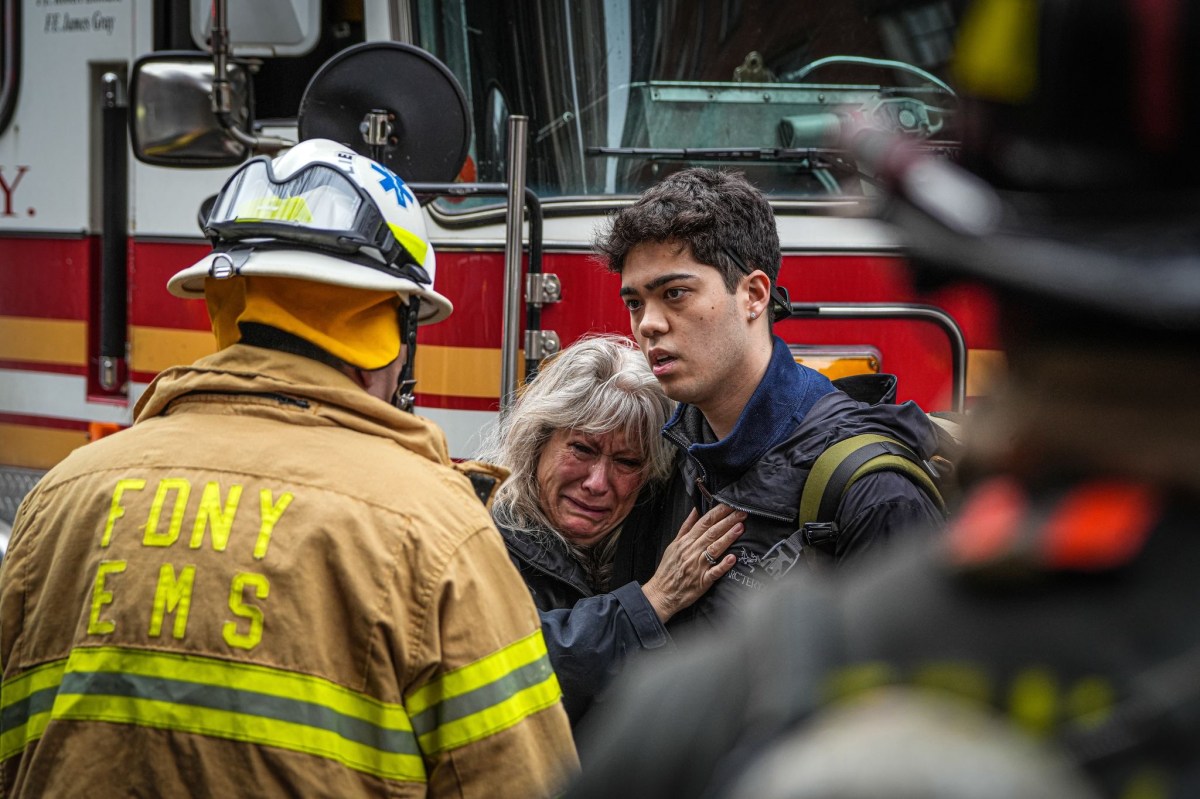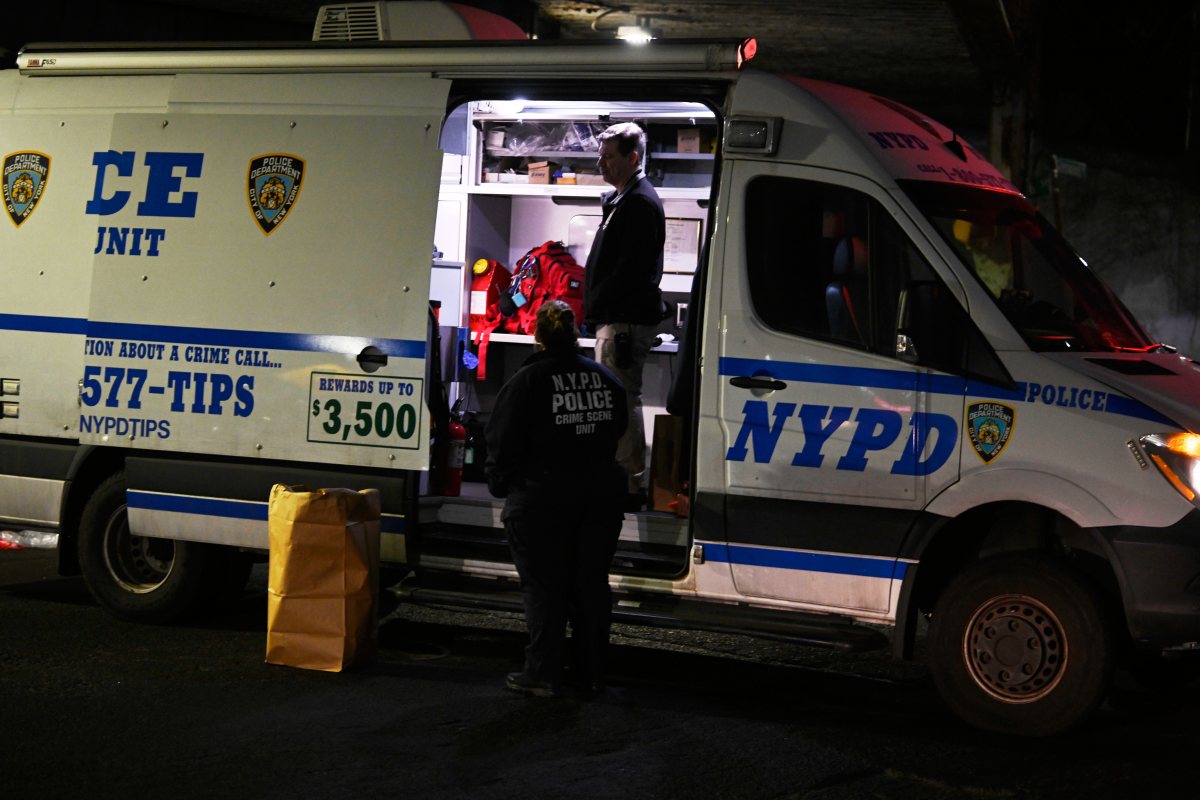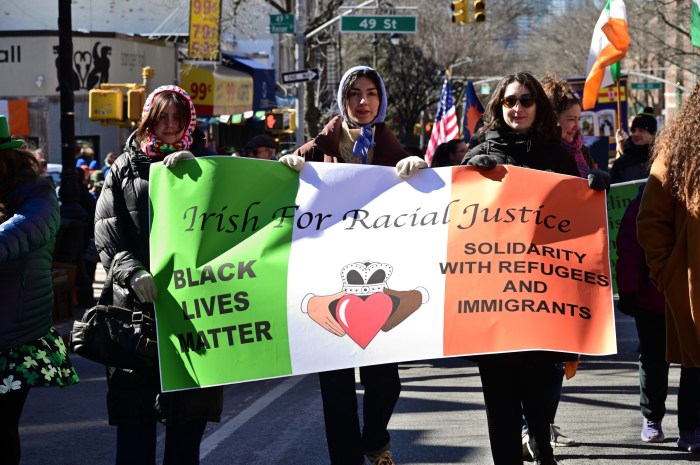PARIS (Reuters) – At the peak of the COVID-19 crisis in France, 29-year-old nurse Justine Debrie volunteered to work in a hospital coronavirus unit. Now she wants to know how the French state is going to recognise her sacrifice.
“I don’t know if the public really understood us,” she said in her studio apartment in Paris, the day after completing a 12-hour shift in the Robert Debre children’s hospital.
“We give them care, and we’ll need care too, sooner or later. We’re human beings too,” she said.
On Tuesday, dressed in her hospital scrubs and carrying a sign she painted at her apartment, Debrie met up with colleagues outside her hospital and together they marched towards the health ministry headquarters to demand better pay and conditions.
At one point along the protest route, police used tear gas to disperse a small group of people who overturned a car and threw projectiles. Police said they were a fringe group who tried to hijack the protest.
In recognition of health workers’ role during the coronavirus outbreak, the government has paid them a 1,500 euro bonus. For weeks, people came onto their balconies every evening at 8 p.m. to applaud carers.
But for Debrie, these felt like empty gestures.
Her basic pay is around 1,900 euros per month, only 200 euros more than she earned when she first started in nursing eight years ago. She said staffing levels were such that she and colleagues had to rush through their shifts and could not give patients the attention they needed.
“The management of the pandemic, of the crisis, within the hospitals was made possible because each hospital worker was devoted,” Debrie said. “I’m angry because they’re trying to appease us with charity.”
The French government has promised a reform of the healthcare system which it says will involve massive investment and greater appreciation shown for health workers.
(Reporting by Emilie Delwarde; Writing by Christian Lowe; Editing by Giles Elgood)

